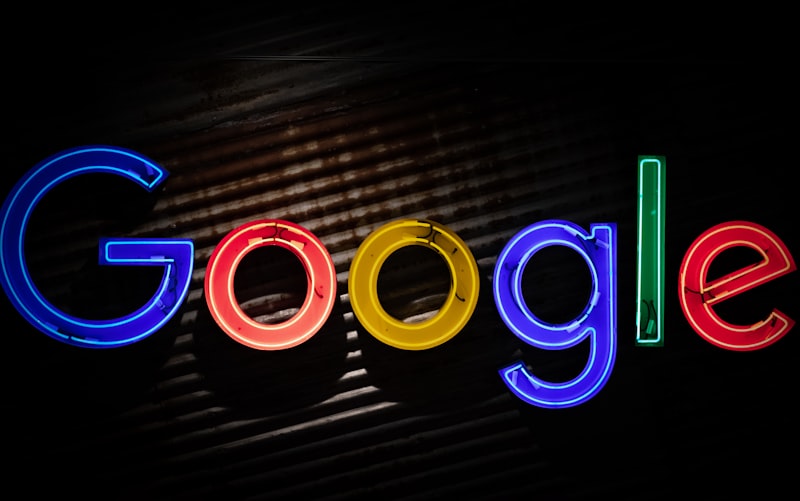Modern buyers have a lot more information and options at their finger tips than ever before.
The modern buyer has a lot more information and options at their fingertips than ever before. The result is that they're doing a lot more research ahead of making a purchase, and as businesses, we need to be able to adapt to this change in consumer behavior. In this post, I will discuss how changes in B2B and B2C buying behaviors reflect broader developments in the way people generally consume products.
B2B and B2C buyers are similar in that they use the same search platforms to find what they need.
The primary way B2B buyers and B2C buyers are similar is that they both search online for what they need. When a business needs new software, it will go online to find out what its choices are. When someone wants to buy a new pair of jeans, they'll likely search online as well.
You may think that this doesn't sound like a substantial similarity, but hear us out: because both types of customers use the same search platforms (Google, Bing, etc.), you can advertise your business or optimize your website for the same channels. This means that you don't have to learn completely different processes to rank where each type of customer searches – you can use the same marketing strategies for both!
For many B2B buyers, money is not an object, but for B2C buyers, it is.
- For many B2B buyers, money is not an object. They are often looking to satisfy a need they have at work; the key is to convince them that your product or service can do this better than others. For example, while office workers might be shopping for supplies like paper clips, staples and binders online—all of which could be considered impulse purchases—the company itself likely makes large orders of these items at once.
- On the other hand, B2C buyers are often more price conscious. They are probably shopping for personal reasons and rarely plan ahead to make purchases in bulk; the amount they spend on any given item is usually smaller than that of a B2B buyer. Because of their shopping habits, B2C buyers typically care more about deals and discounts than anything else when making purchases.
B2B and B2C marketers should both focus on value in their content.
Unlike many marketers, I think there's more common ground between B2B and B2C marketing than you'd expect.
Both types of marketing can benefit from actually caring about the audience they're communicating with. In other words: give them something that adds value to their life. How much value? That depends on where they are in the buyer journey—but it can be a small thing like a smiley face or a joke. For example, at WordStream, they have "random acts of kindness" in their email marketing content. It might not help someone buy software, but it makes their emails more fun and memorable, which is good for business!
The sales cycle length is different for B2B vs B2C companies.
Another thing to keep in mind is that the length of the sales cycle is different for B2B vs B2C companies. For example, let's say you're a B2C company and someone searches "buy crackerjack" on Google. The keyword they used indicates that they want to buy something right away; they type in 'buy' because they're not looking to just learn more about or compare crackerjack, but rather actually buy some right now. So if a user comes to your site from a search with this intent, then it's likely that their next click will be to purchase something from you!
On the other hand, let's imagine that someone searches "meeting tools comparison." This likely means that they are doing research before making a purchase decision—perhaps comparing prices, features and quality across different products before deciding which one to buy (rather than just buying the first product they come across). In this case, if a user clicks through from their search results page to your website and finds what he or she needs, then you've accomplished your goal for today! However, it doesn't necessarily mean that the next step will be purchasing your product or service—the user might also bookmark it for later reference or even share it on Twitter so her friend can see.
Perhaps these searchers will come back later and complete their purchase on your site… Or perhaps they'll eventually decide not to buy anything at all (hopefully after sharing links to multiple pages on your site with friends. Either way, there isn't always an immediate correlation between ranking high and making money. Remember: SEO is about bringing in targeted traffic... Not directly bringing in revenue (even though SEO can often indirectly do both)!
Keyword research is one of the most important tools you can use as a marketer, whether you're selling to people or businesses.
At the end of the day, we're all trying to market something. And no matter who you're marketing to, it's important to know how your prospects are searching for you so that you can get them where they want to go.
This is why keyword research is one of the most important tools you can use as a marketer, whether you're selling to people or businesses.
Both B2B and B2C marketers should spend time on conversion-focused SEO if they want to boost sales.
- For both B2B and B2C marketers, keyword research is crucial. Understanding the search terms your intended audience uses to find information related to your product or service is a key factor in optimizing your website for those searches.
- However, while both B2B and B2C companies need to conduct this research and optimize their website content with these keywords in mind, they will likely be using different strategies for selecting keywords. In general, you'll want to prioritize long-tail keywords (three or more words) if you're a B2B company since users tend to use longer queries when searching for business products like software or services.
- Both B2B and B2C can benefit from local SEO—optimizing their sites, so they show up in the results of local searches from potential customers nearby. If you have a physical location that customers can visit, it's important to make sure people searching for products like yours locally can find you easily.
Selling your products or services to people is different than selling them to other businesses, but there's still plenty of overlap between techniques that work for both audiences.
Conclusion
When it comes to B2B and B2C SEO, you're likely going to see similarities in the overall process. You'll have to consider your target customer when creating content, for example. You'll also need to consider where that content will be the most effective and how you'll get it there. There are also some differences that make B2B and B2C marketing approachable but different beasts entirely.
The first difference between the two is that while B2C marketing often uses a direct sales model, B2B marketing typically aims to build trust with a lead before pitching them anything. This means that your content needs to be geared toward establishing credibility rather than directly pitching a sale.
Another difference is that while B2C products tend to be tangible and can be bought during one visit, B2B products are more often intangible and require multiple visits as well as an existing relationship between the business and the customer. This means you'll need different types of content for both stages of the purchasing process.
And finally, B2B marketers have a much smaller audience than their B2C counterparts—meaning they have to use content to reach out and find new clients rather than spreading their message out across social media or other platforms.






